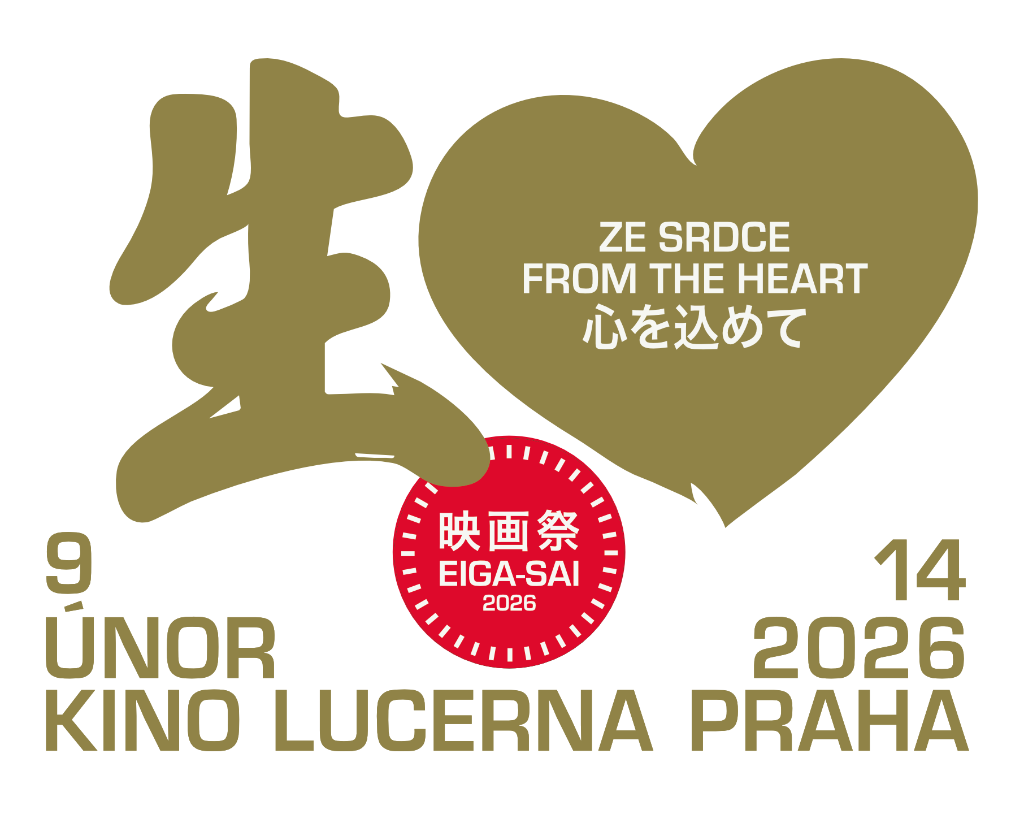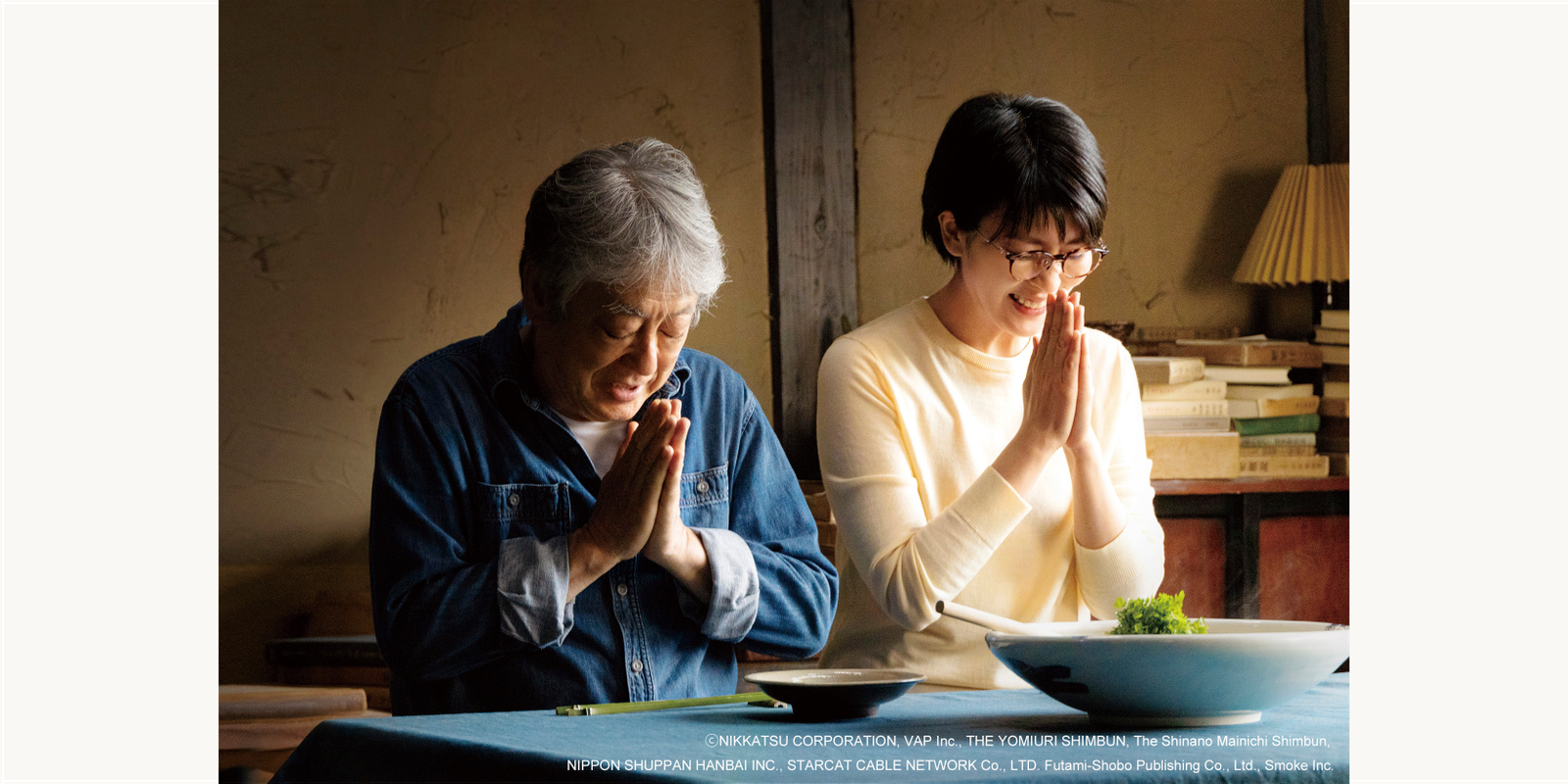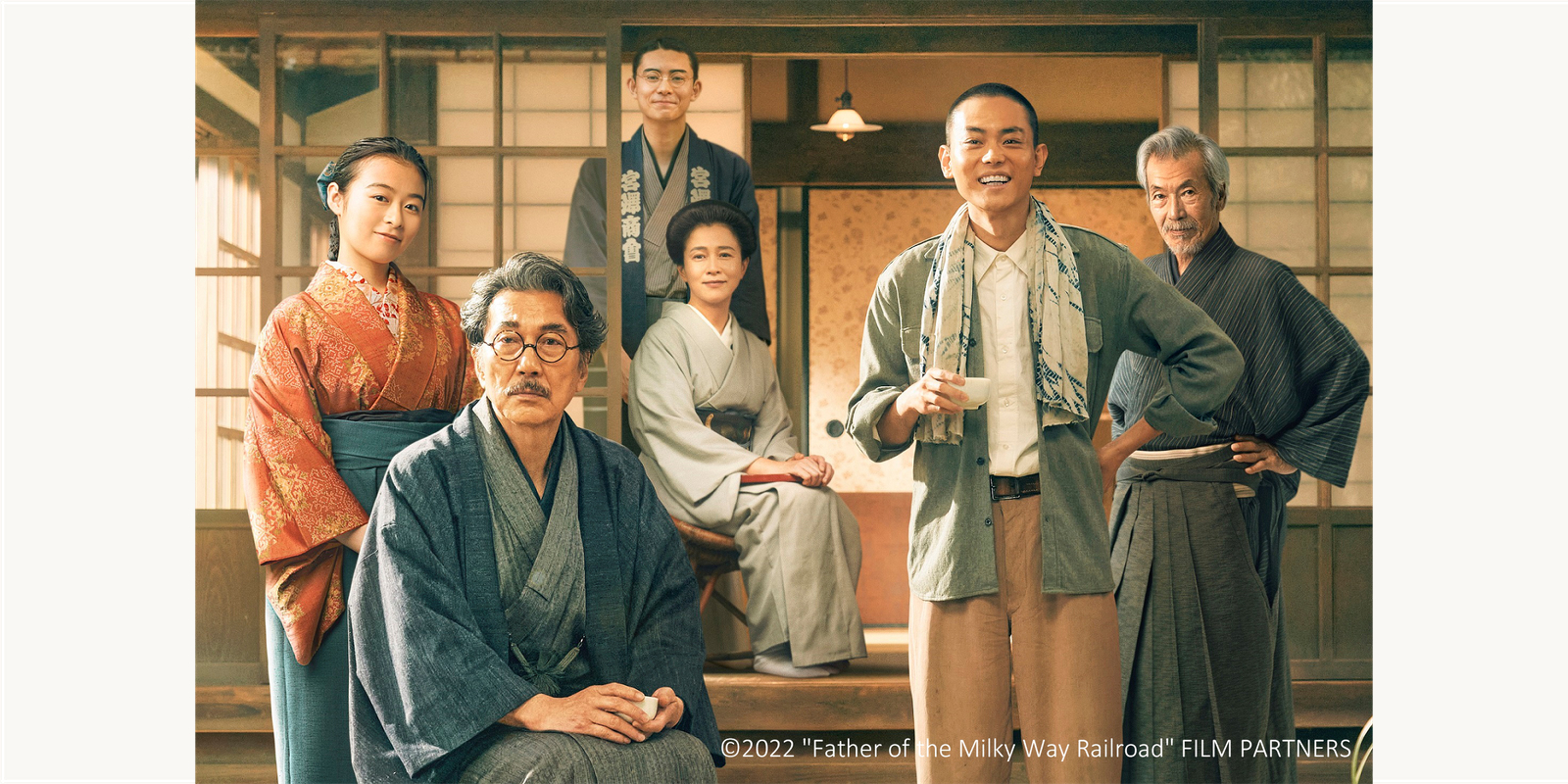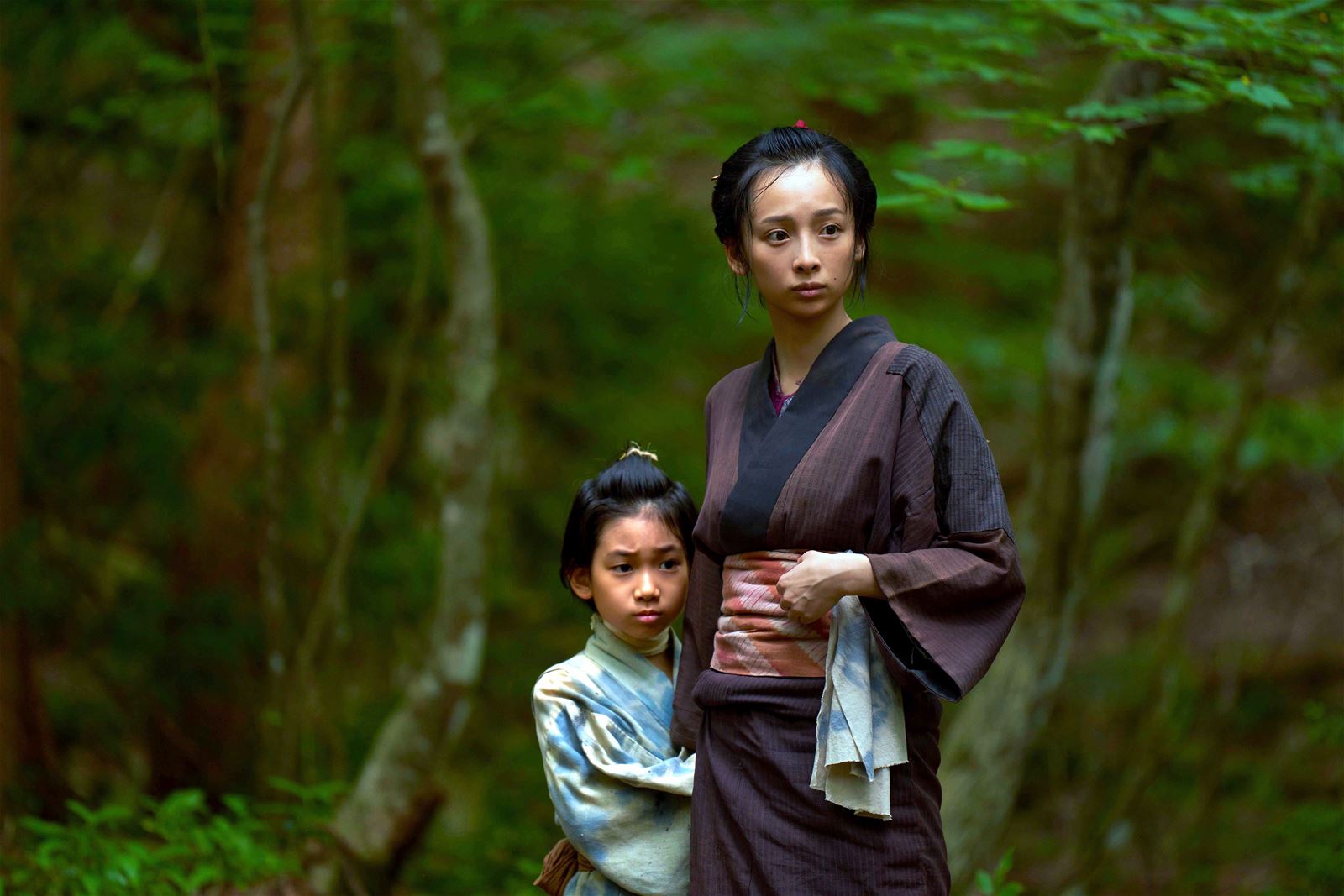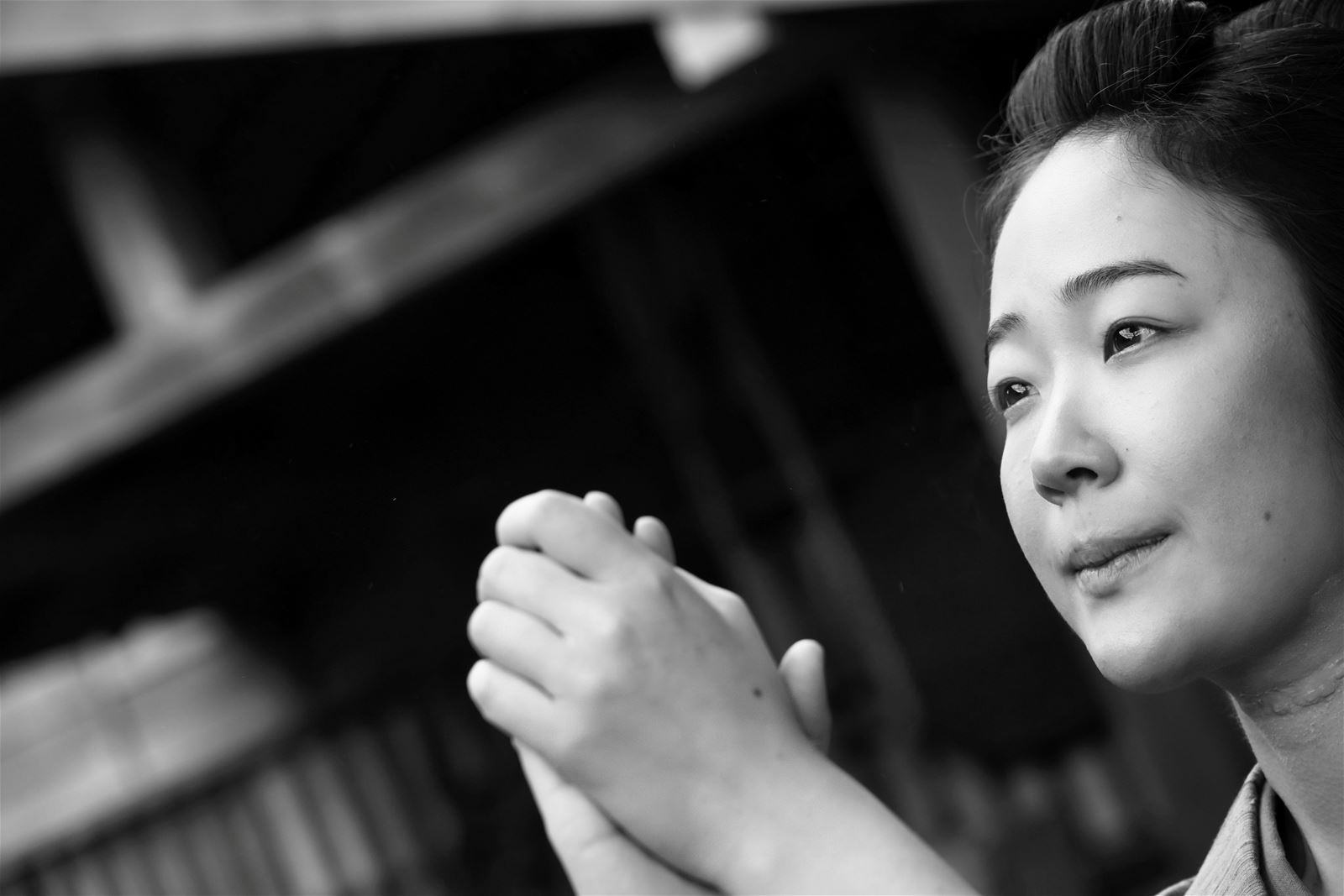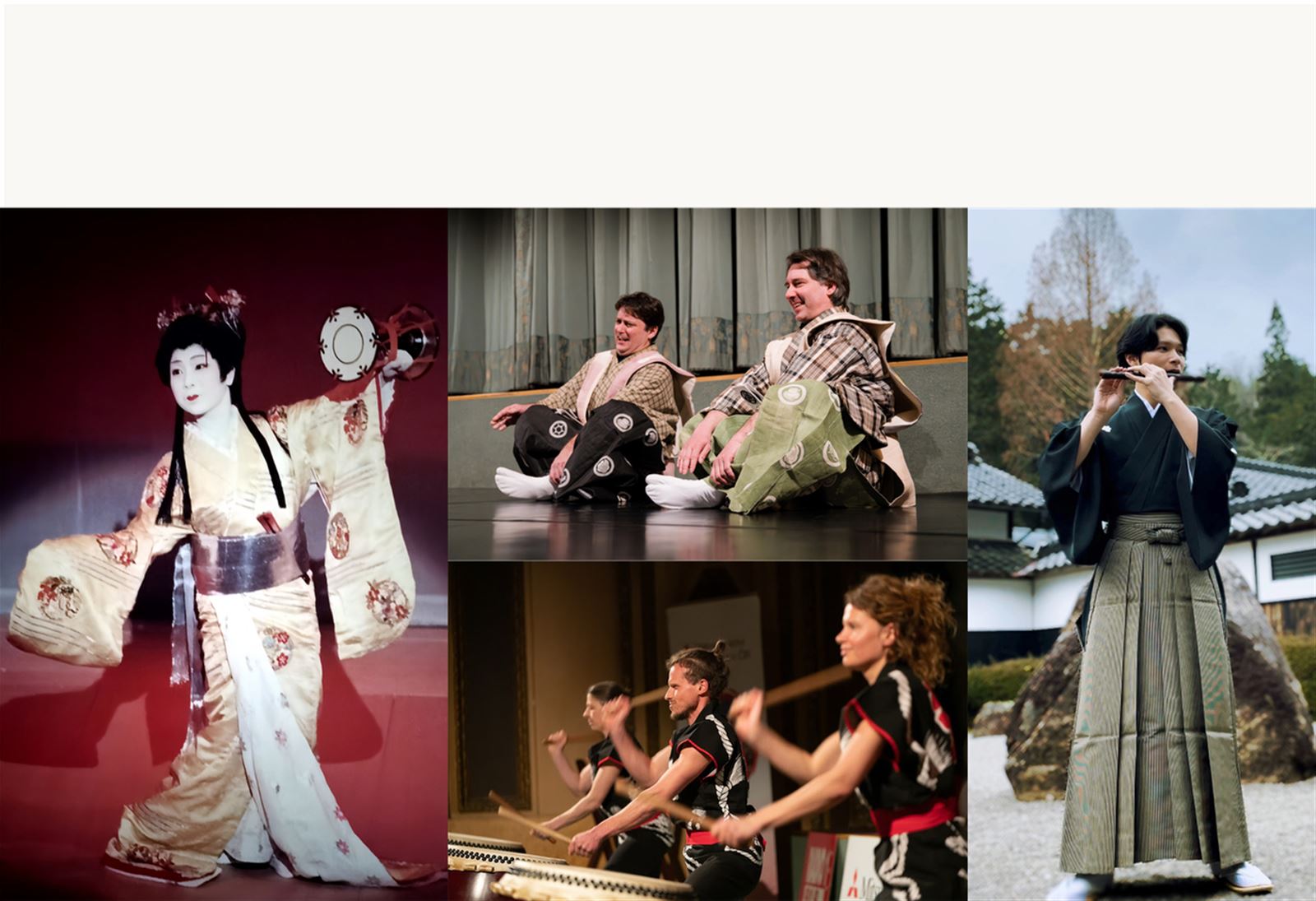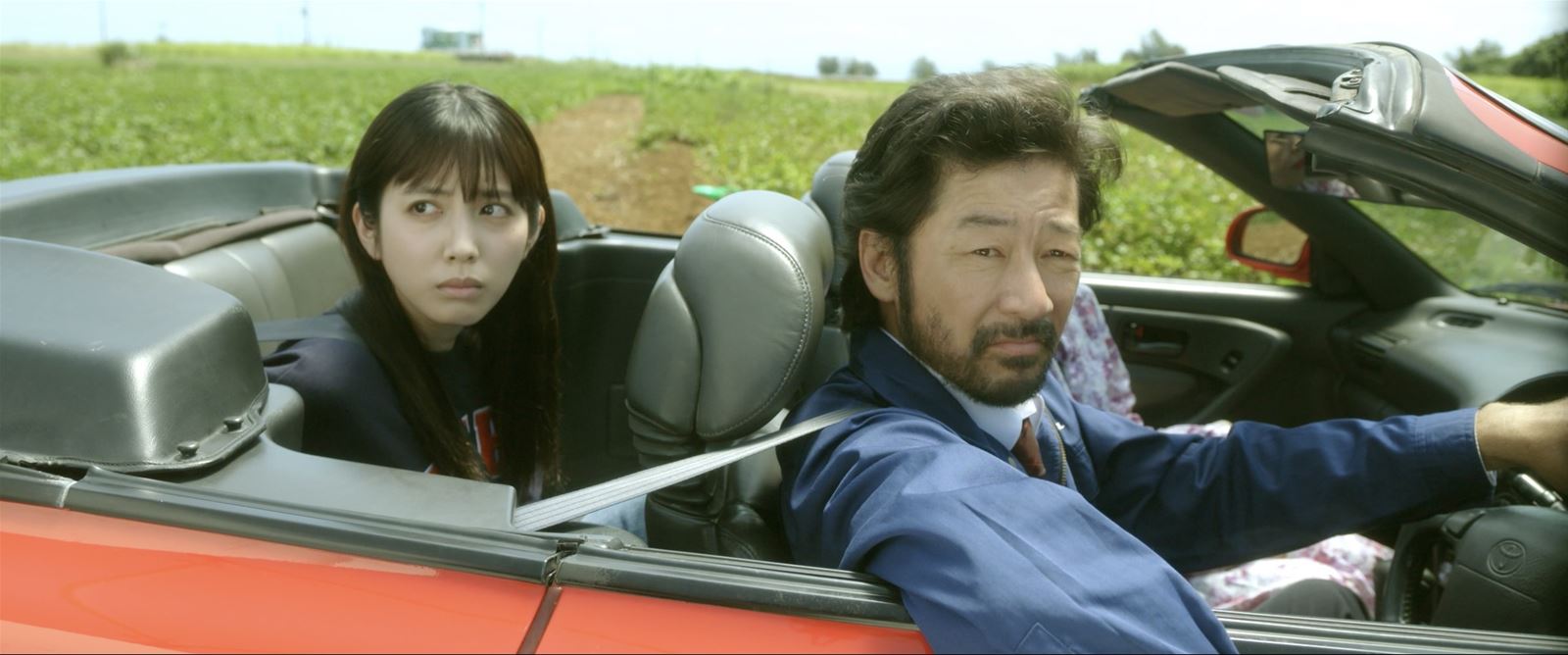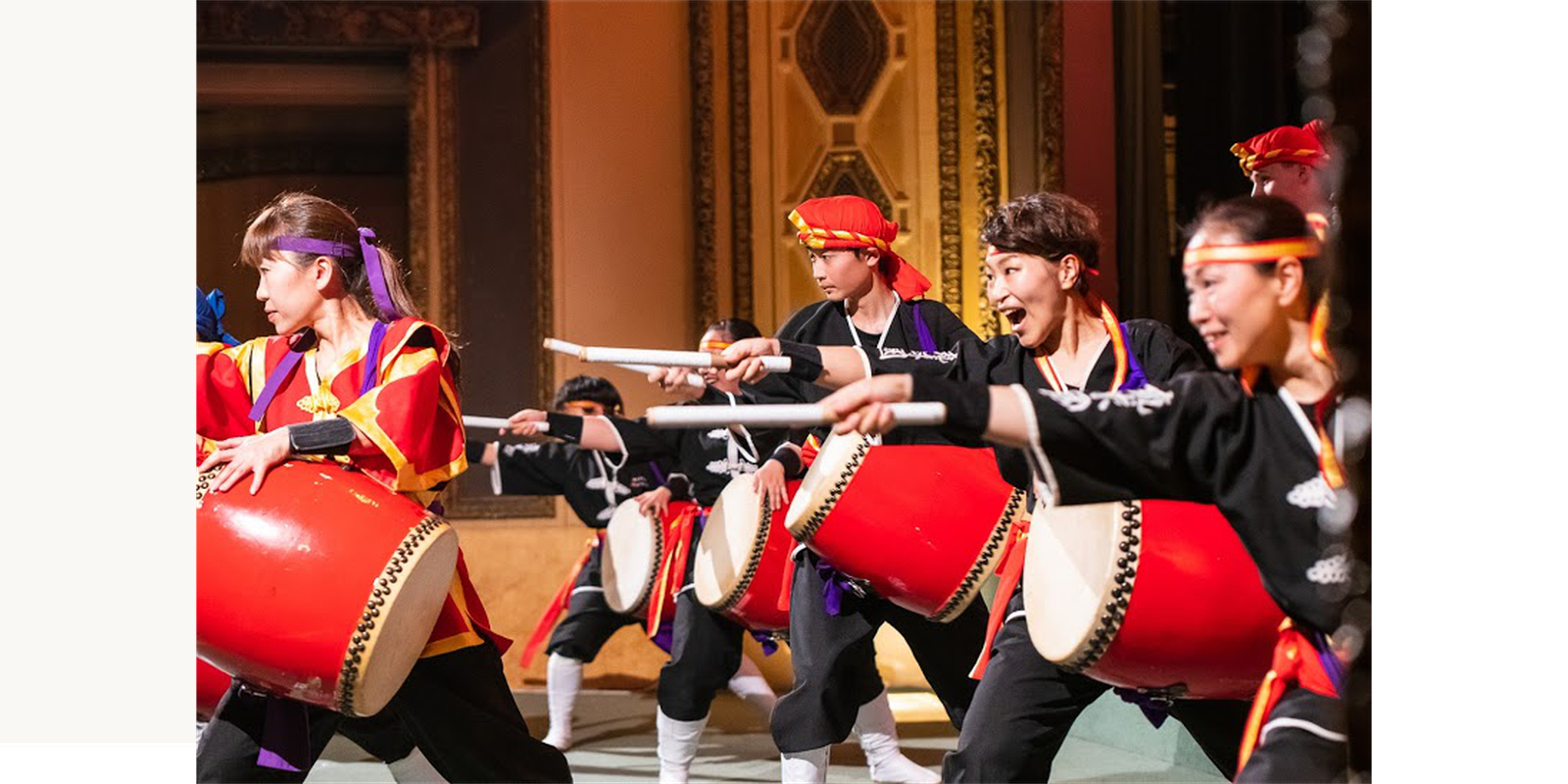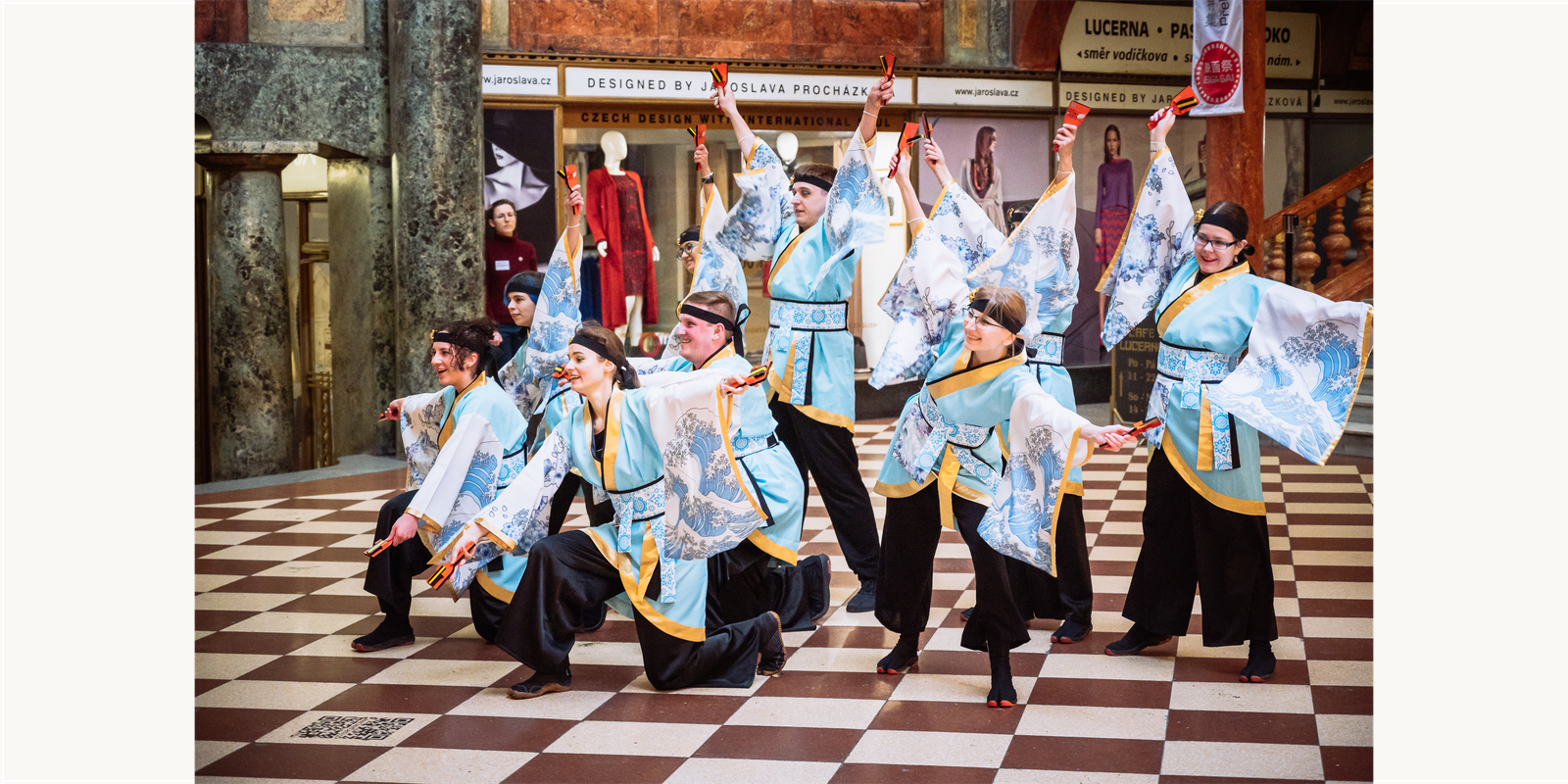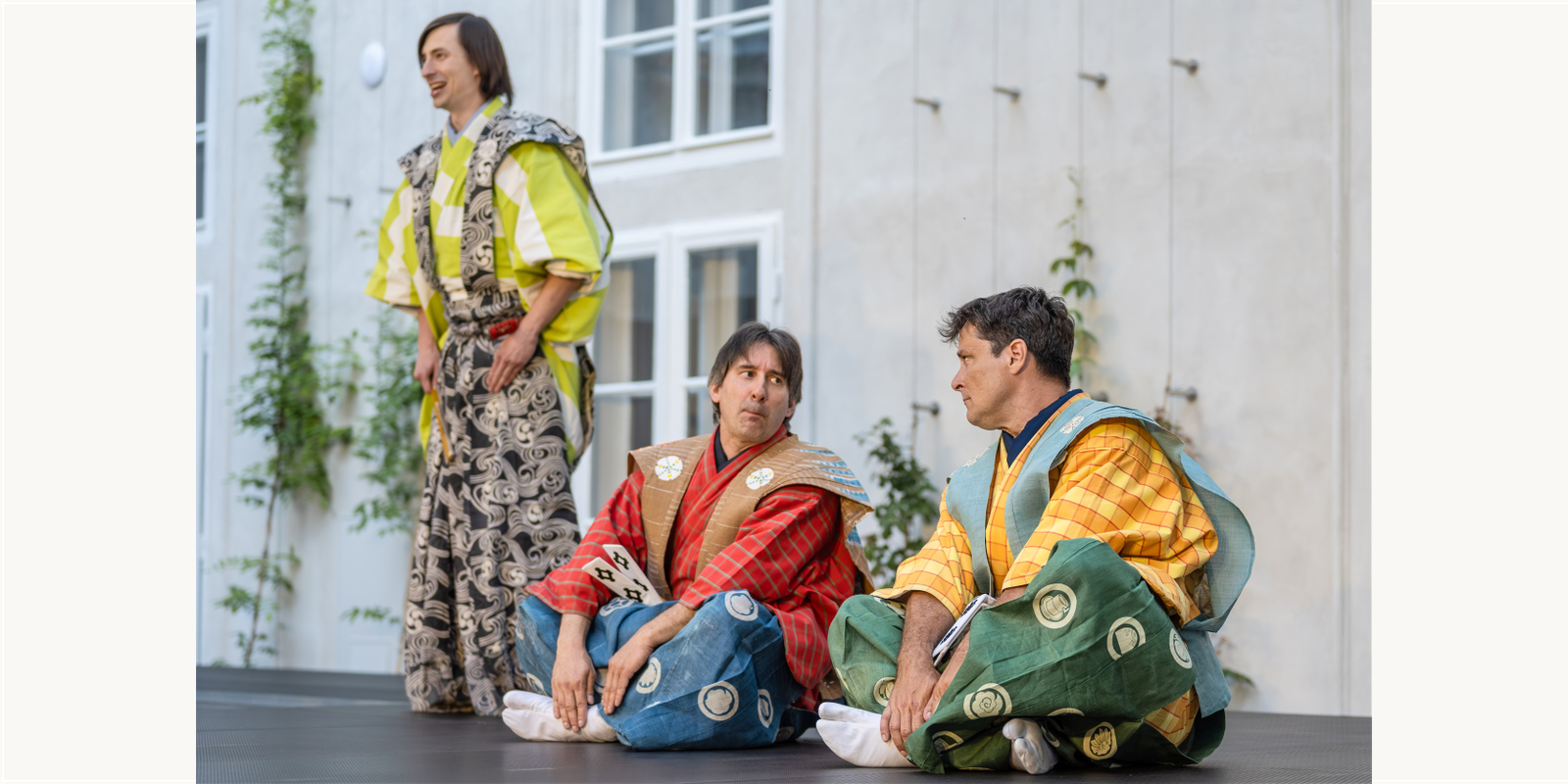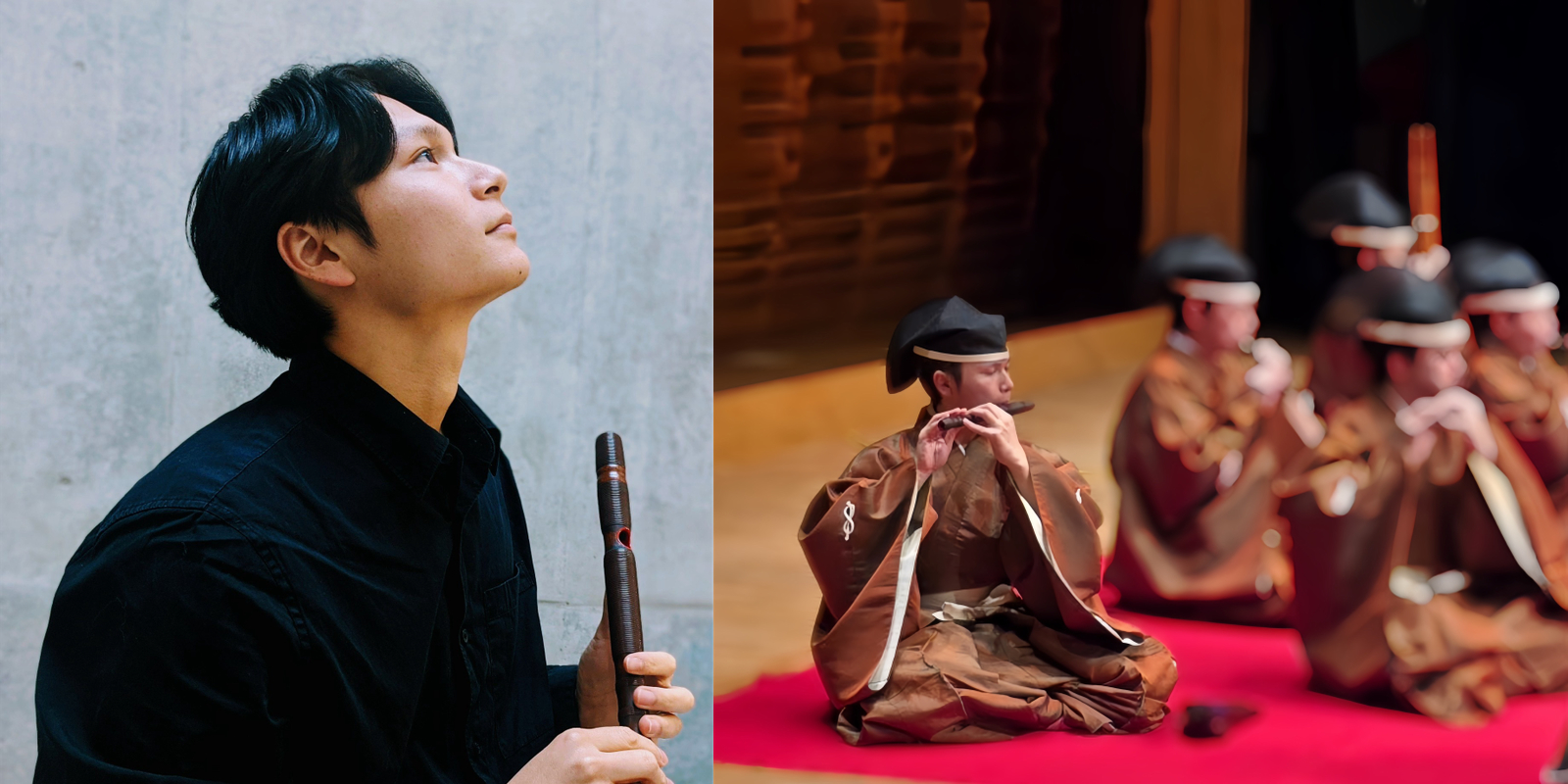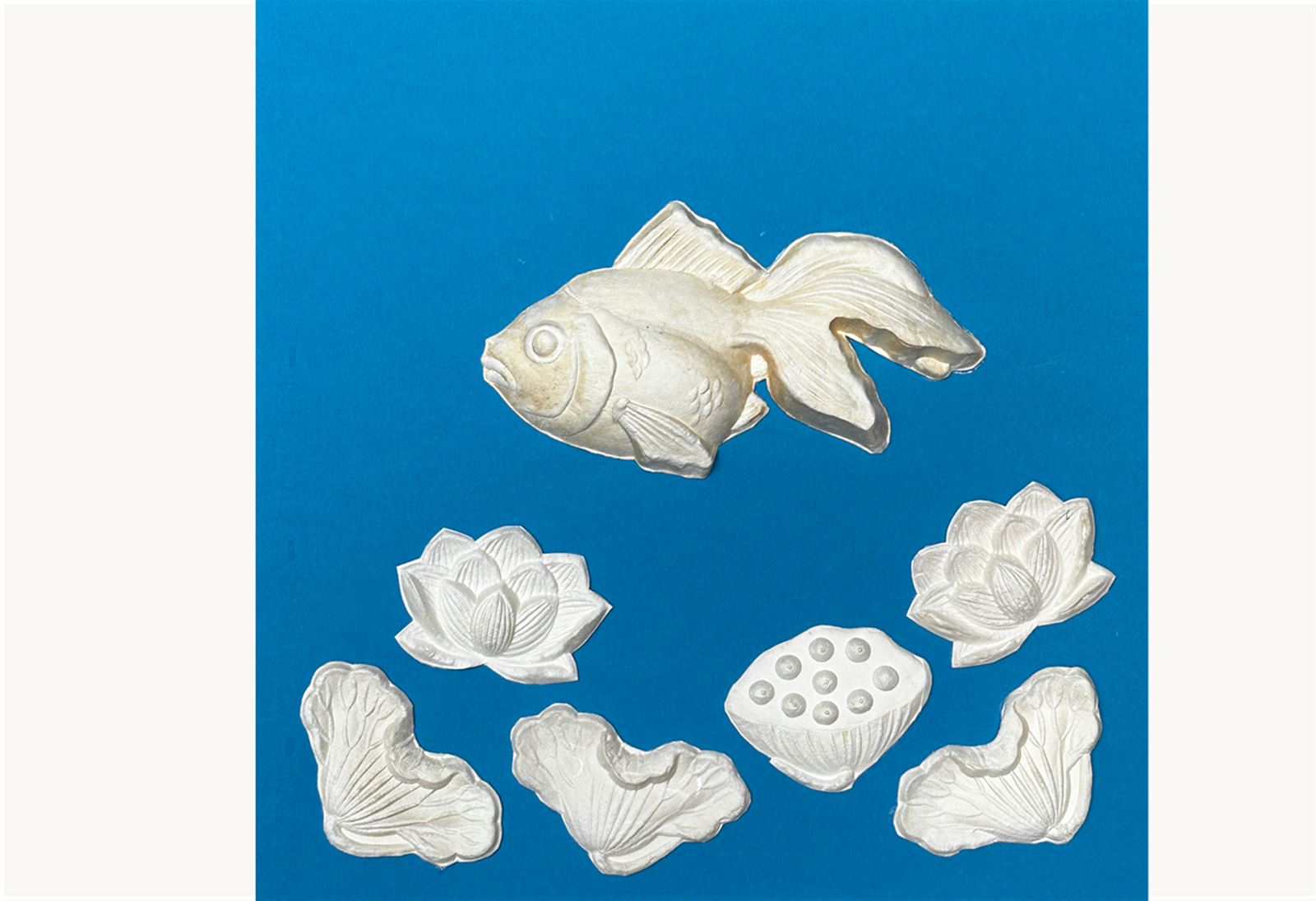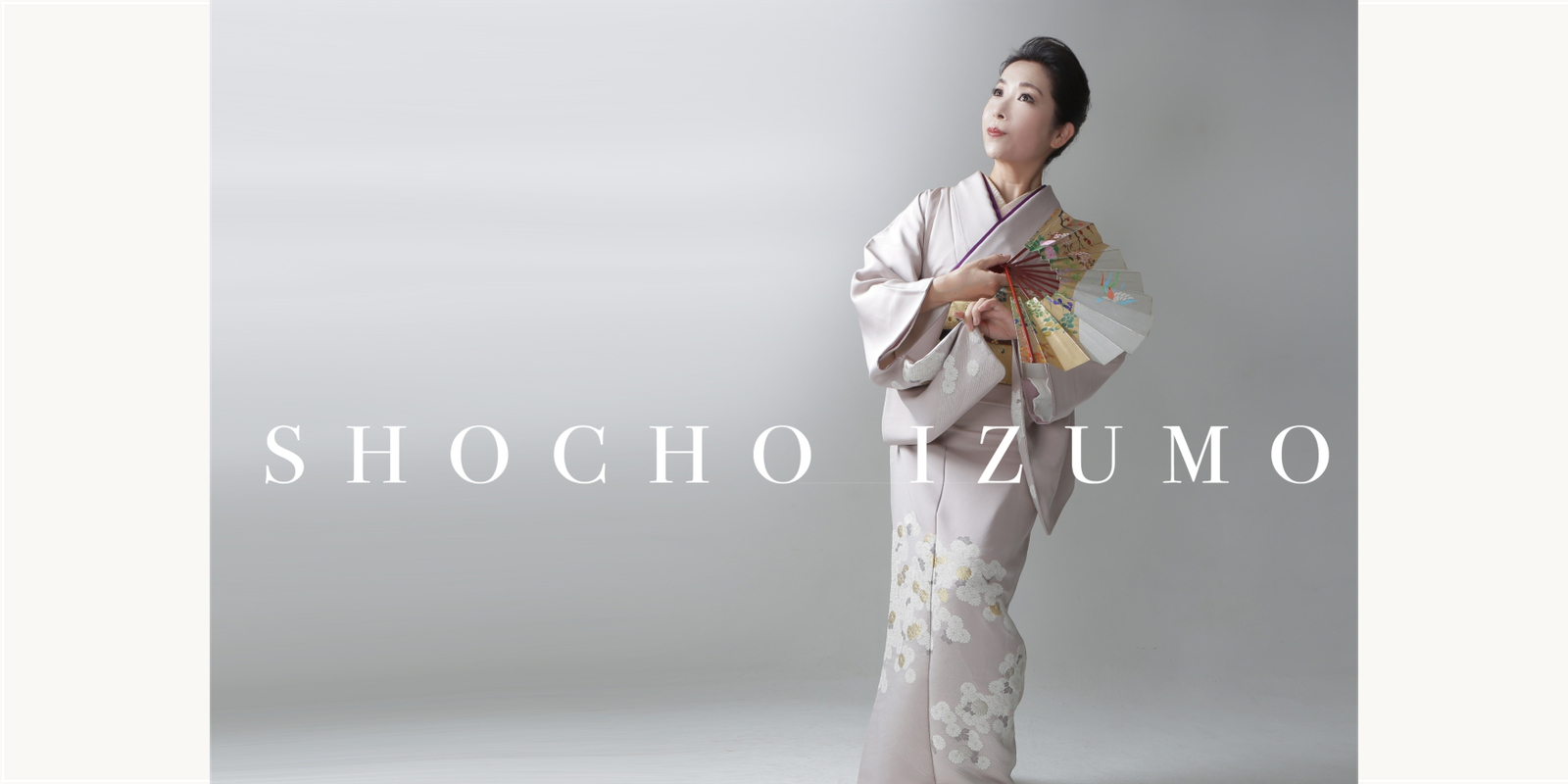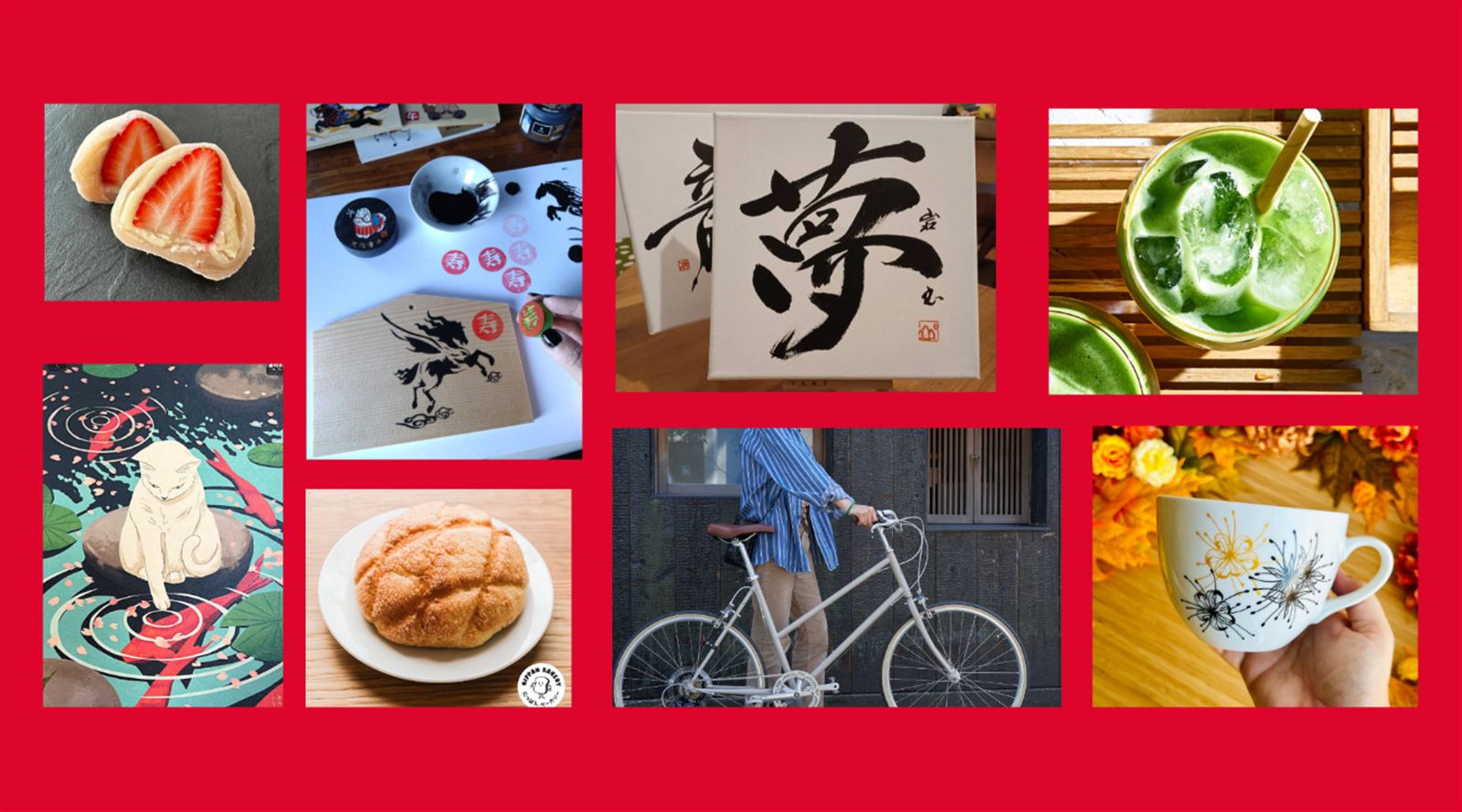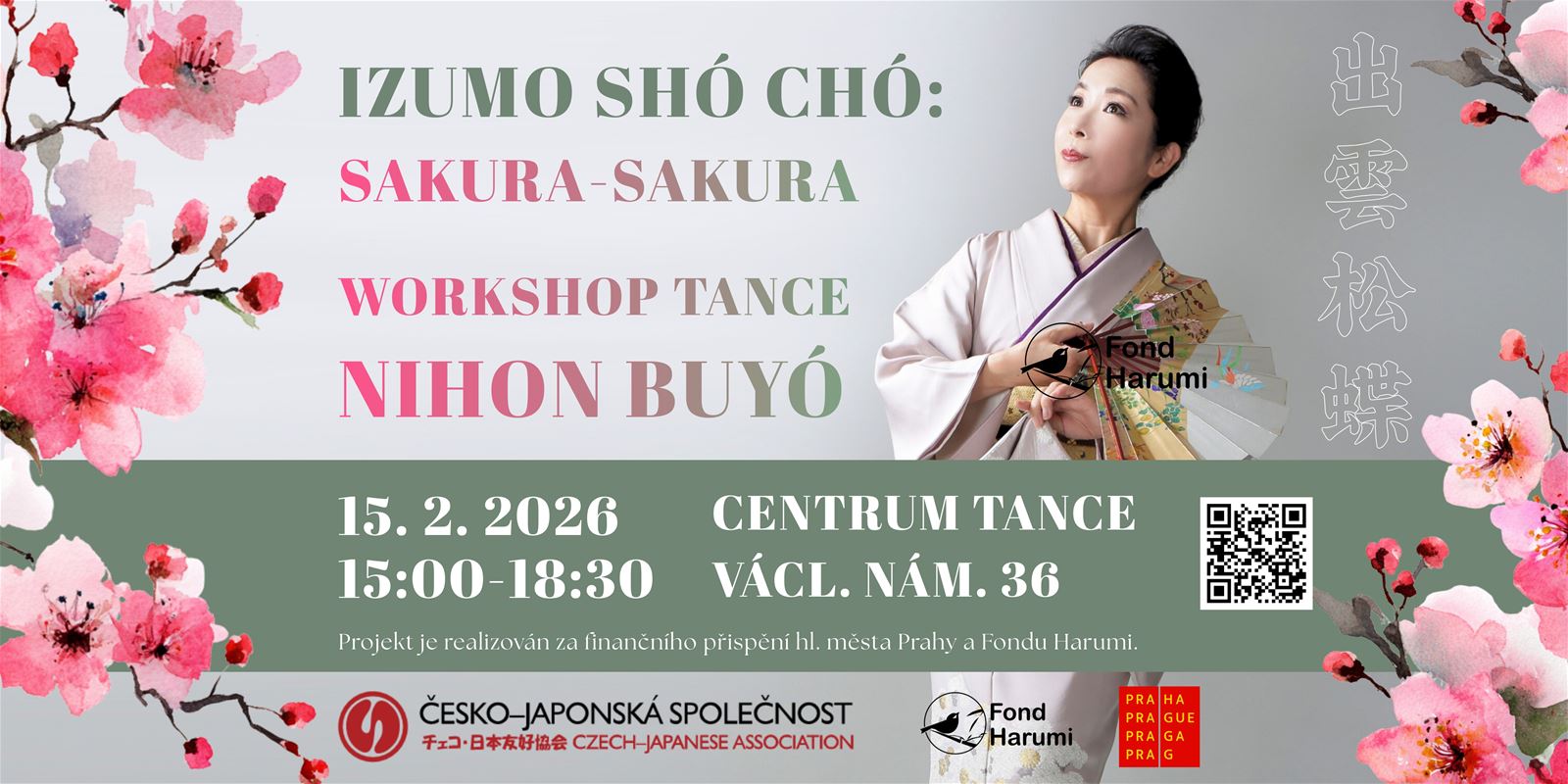
ACCOMPANYING PROGRAMME / 他プログラム
ACCOMPANYING PROGRAMME / 他プログラム
FROM THE HEART
We are living in an era of almost unlimited opportunities. We can travel, study, conduct business and enjoy freedom which former generations never even dreamed of, and yet we approach it as something quite obvious. But can this rapid life full of expectations, demands and constant chasing after our dreams truly bring us inner satisfaction and harmony?
Japanese playwright and actor Zeami Motokiyo once likened an artistic message to a flower that is passed from heart to heart. This idea also provided the inspiration for this year’s edition of Eigasai, the 19th festival of Japanese cinema and culture, which is very close to all of our hearts indeed.
The motto “From the Heart” reminds us that if we want to live a fulfilled and happy life, our heart is sometimes more important than our head which tends to spur us on to endlessly pursue performance and practicality. Maybe this is the right time to stop for a moment and let our hearts speak.
The stories of this year’s festival films will take us to Japan, both current and past. We will shed the everyday pragmatism and enter a world where love has greater value than property, tradition and respect for nature prevail, and even a simple meal brings joy if made with love and humility. We will witness stories that inspire us to continue our effort even though the goal is not in sight or seems out of reach, even where there is no cure for the disease and the social position seems to defines one’s destiny with no option for a change. What all these films have in common – and what we wish to convey to you – is a message of kindness and determination to not give up.
The films to be screened as part of this year’s edition of the festival were provided by The Japan Foundation in cooperation with the Embassy of Japan in the Czech Republic and the Freestone Production, EST studios, and Aerofilms distribution companies.
EIGASAI 2026
日本大使のご挨拶 / Greeting from the Japanese Ambassador
第19回目となる今回の映画祭のテーマ「心を込めて」は、人と人との繋がりや、日々の暮らしの中で大切に受け継がれてきた想いを、様々な日本映画を通じて紹介するものだと感じています。効率や速さが重要視されがちな現代社会において、誰かを思いやる気持ちや、時間をかけて何かに向き合う姿勢は、改めて見つめ直されるべき価値観ではないでしょうか。このような問いかけは、日本のみならず、チェコの社会においても共感を呼ぶものだと思います。
本映画祭で上映される作品の主人公たちは、それぞれの立場で人生や家族、自然、そして社会と真摯に向き合っています。例えば、『土を喰らう十二か月』は、四季の移ろいを感じながら、亡くなった妻を始めとする人々との関係のありかたについて、食を通じて向き合う主人公の姿を表現しており、日常の中にある豊かさや心の在り方を静かに描いています。また、『銀河鉄道の父』は、宮沢賢治の家族の絆と創作に懸ける情熱を通して、不器用ながらも深い愛情を伝えてくれる作品です。
映画や日本文化に触れるひとときを通じて、ご来場の皆様が日本をより身近に感じ、またご自身の暮らしや大切な人々について思いを巡らせる機会となることを心より願っております。
最後となりましたが、本映画祭の企画・実行にご尽力されたチェコ日本友好協会の皆様をはじめ、ルツェルナ映画館、国際交流基金、各協賛企業、そして多くのボランティアの方々など、関係者の皆様にこの場を借りて心より御礼申し上げます。
駐チェコ共和国日本国大使
長岡寛介
Download
TICKETS
All movies are in Japanese, subtitled in both Czech and English.
Single entry tickets 170 CZK, for ZTP, students and seniors 150 CZK.
For children under 10 years of age, free admission to the film Ponyo. This movie is in Japanese with Czech subtitles.
The discount on admission can only be applied at the Lucerna cinema ticket office.
Accreditation for 1000 CZK and ZTP/student/senior 900 CZK.
On sale from 10th January 2026 only at the Lucerna Cinema box office.
Film screenings and performances take place at the Great Hall of Lucerna Cinema, Vodičkova 36, Praha 1.
The program may be subject to change.
Eigasai Without Barriers?
If stairs are an obstacle for you but you would like to attend one of the film screenings, please write to us at office@eigasai.cz or send a message via the Czech-Japanese Society on Messenger. We will do everything possible to ensure your visit is safe and comfortable.
Kino Lucerna, as part of the Lucerna Palace, has been in operation since 1909. The building, designed in the style of Secessionist modernism, has been a national cultural monument since 2017. For this reason, providing barrier-free access to all areas is very complicated.
チケット販売
全映画は日本語音声、チェコ語・英語字幕。
各映画のチケット料金 170,-CZK
割引対象
障害者手帳をお持ちの方や高齢者は150,-CZK
「崖の上のポニョ」をご覧になる10歳までのお子様の入場料は無料
*上記割引は、ルツェルナ映画館のチケットカウンターでご購入の時のみ有効
映画祭期間中、どの映画にも自由にお入りいただける期間共通券の料金は
1000,-CZK、障害者・学生・高齢者は900,-CZKです。
映画はVodičkova 36, Praha 1、 ルツェルナ宮殿内映画館の大ホールにて上映。
Contact
office@eigasai.cz


